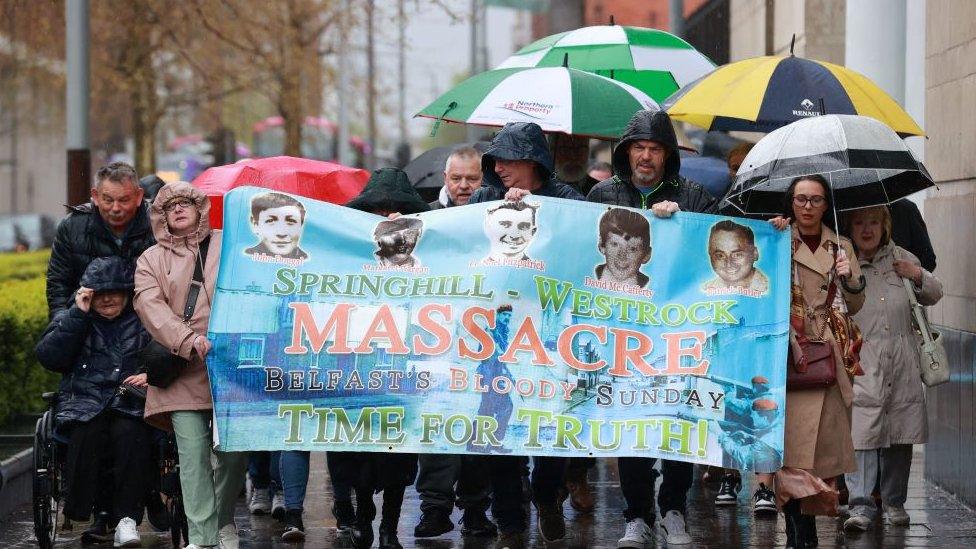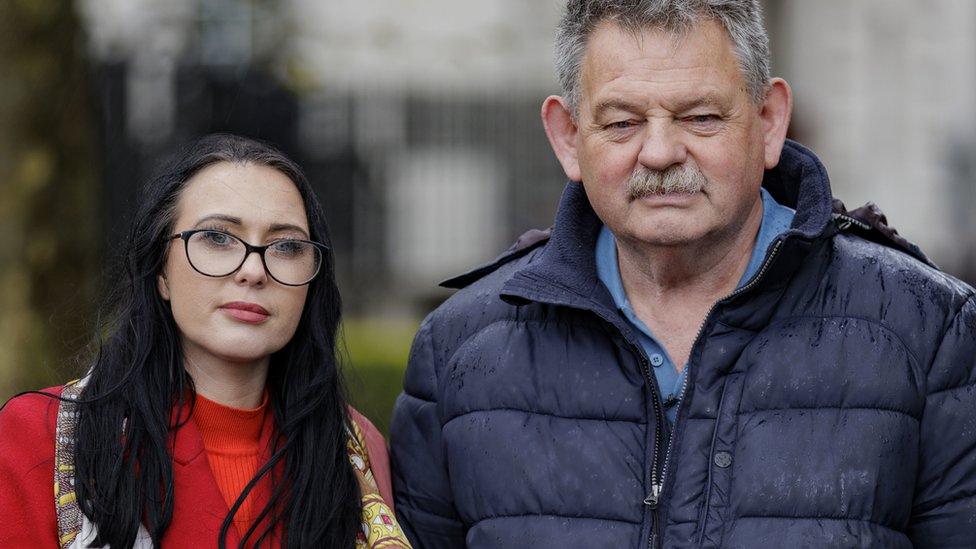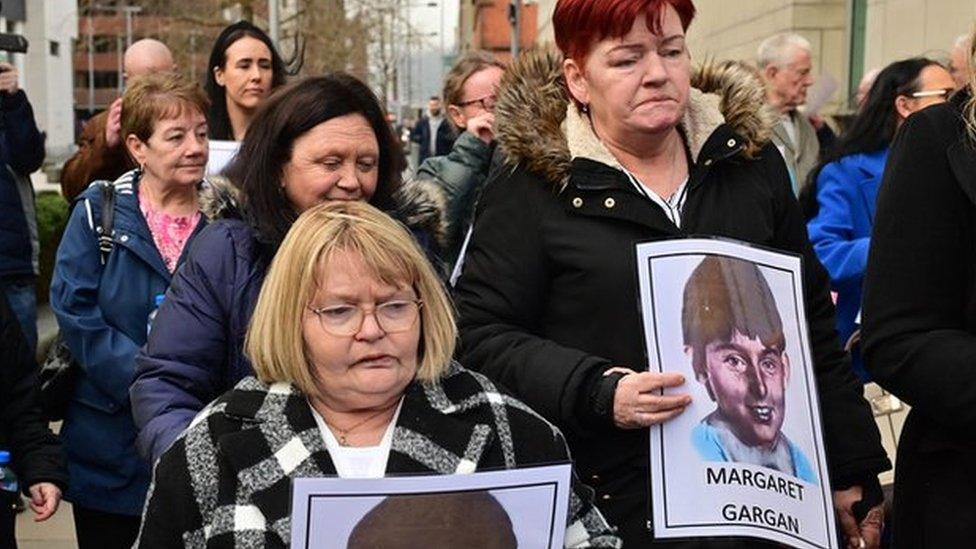Springhill inquest: Hugs and applause as hearing ends before Legacy Act deadline
- Published

Relatives of those was killed during the Springhill killings, outside the coroners court at Laganside in Belfast on Monday
Bereaved relatives applauded and hugged as a long-running Troubles inquest completed its evidence before the Legacy Act comes into effect.
Three Catholic teenagers, a father-of-six and a priest were shot dead in the Springhill estate, west Belfast, in 1972.
Their families believe they were killed by the British Army and say they are seeking truth.
Final submissions in the inquest concluded on Tuesday afternoon.
Those who died were John Dougal, 16, Patrick Butler, 37, Father Noel Fitzpatrick, 42, David McCafferty, 15, and Margaret Gargan, 13.
Coroner investigations into Troubles-related deaths must cease on May 1 under the terms of the Government's Legacy Act.
But cases are awaiting the delivery of findings, after all the evidence has been heard, can be brought to conclusion after the deadline.
Final hearings have been taking place in a series of legacy inquests as part of an intensive court schedule ahead of the deadline.
Some inquests have managed to conclude, while others have fallen due to the legislation.
Coroner Mr Justice Scoffield held a special sitting on Saturday as part of the drive to finish the evidence in time.
Family members rose to their feet and clapped as the coroner formally ended the evidence hearings in Belfast Coroner's Court after lawyers completed their final submissions on Tuesday.

Natasha Roberts (left) and Harry Gargan of the Springhill families spoke of their relief
Natasha Roberts, granddaughter of father-of-six Patrick Butler, said it had been a very emotional day.
"It's been a very long journey to get to this point," she said.
"It's been cruel and it's been very traumatising waiting to find out the circumstances of how our loved ones died."
Harry Gargan was 12 when his sister Margaret who was a year older was killed.
"I always think of my mother coming back from the original inquest - she was a bit naive expecting an apology or something.
"Her 13-year-old daughter was described as a 20-year-old gunman with a gun in his left hand. It totally destroyed her."
Fast-track timetable
The original inquest into the five deaths was held in 1973. The coroner at the time returned an open verdict.
In 2014, then Attorney General John Larkin directed that new inquests should be held.
Mr Justice Scoffield agreed to fast-track the timetable last September.
At the time, he said that while it was realistic to finish ahead of the deadline, he insisted it would be challenging and was not guaranteed.
"I know that all of the lawyers have been working under very considerable pressure in order to properly represent their clients' interests in our hearings in this inquest and that's particularly been so in recent weeks," Mr Justice Scoffield said.
"I know many of the lawyers have had to make some sacrifices or compromises in terms of other professional commitments."
He continued: "Unlike me, you don't have to continue grappling with the evidence to now resolve a range of difficult legal and factual issues and to write up findings."
The coroner paid tribute to the family members of those who died. He said those who were killed were "valued family members and loved ones who I'm sure are still sorely missed".
He told the relatives: "You've conducted yourselves with dignity and fortitude throughout the proceedings and throughout evidence, which I'm sure was harrowing at times."
The coroner said he would be in a position to deliver his findings at some point this year, but not before September.
Related topics
- Published20 February 2023

- Published1 March 2023
